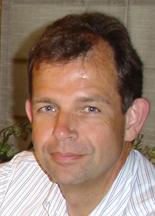
17th INTERNATIONAL FORUM ON MPSoC
for software-defined hardware
Speaker's Profile

Kees van Berkel
Ericsson
Professor at Eindhoven University of Technology,
The Netherlands
Exascale Computing for Radio Astronomy: How to Program?
Download SlidesAbstract
Next generation radio telescopes will generate compute workloads in the exascale range, that is, roughly 1B scalar units running @1GHz (MPSoC'15). GPUs will fall one decimal order of magnitude short to meet the power target of 100GFLOPs/Watt, whereas FPGAs might just do the trick (MPSoC'16).
But how to program for these levels of parallelism and power efficiency?
In my presentation I will:
- explore dataflow as a simple, yet powerful programming model;
- introduce a dataflow execution model that is both transparent and efficient;
- demonstrate an embedding of these models in Python;
- speculate about scaling up, up, up ... towards exascale.
Biography
Kees van Berkel started his R&D career at Philips Research in 1980, after receiving an MSc degree in EE from TU Delft. Since 2000 he has been a fellow at Philips, NXP, ST-Ericsson, and Ericsson, until mid 2015. He obtained a PhD in CS from TU Eindhoven in 1992, where he is a part-time full professor since 1996.
Kees pioneered asynchronous VLSI from theory to mass production, as well as embedded vector processing for software-defined radio. His research interests include software-defined radio, vector processors, multi-core architectures, resource management, and low power computing. His current research interest is exascale computing for radio astronomy.

